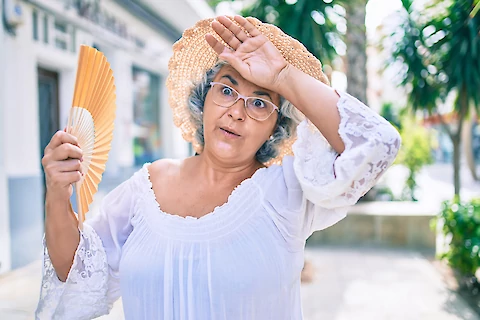
Summer is a time for fun, but it also brings about certain risks, including an elevated risk of heat stroke, especially for seniors. This helpful guide focuses on the risks of heat stroke in seniors, how to identify symptoms, and what preventive measures can be taken to ensure their safety.
Why Seniors Are at a Higher Risk of Heat Stroke
As people age, their bodies become less efficient at regulating temperature, which puts seniors at an increased risk for heat stroke. This higher risk can be attributed to various age-related factors, such as a decreased ability to regulate body temperature, reduced ability to sweat, chronic medical conditions, and certain medications that affect heat regulation.
Additionally, environmental factors, like hot weather, lack of access to air conditioning, and dehydration, can exacerbate the issue, making it even more important to be vigilant during the summer months.
Signs of Heat Stroke in Seniors
Being able to recognize the signs of heat stroke in your senior loved ones can be life-saving. Keep an eye out for a high body temperature of 103°F or higher, an altered mental state or behavior, such as confusion, agitation, or slurred speech, and nausea or vomiting. Rapid, shallow breathing, a weak pulse, flushed skin, and fainting or unconsciousness are also indicative of heat stroke. If you notice any of these symptoms, it is crucial to take action immediately.
Preventative Measures for Heat Stroke
Prevention is key when it comes to heat stroke, and there are several measures you can take to help protect seniors during hot weather. First and foremost, make sure your loved ones have access to air-conditioned environments, especially during the hottest parts of the day.
Encourage them to drink plenty of fluids to stay hydrated and to wear lightweight, light-colored, and loose-fitting clothing. Taking cool showers or baths can also help lower body temperature and provide relief.
Limiting outdoor activities during the hottest times of the day can be vital in preventing heat stroke. Instead, plan outings during early morning or evening hours when the temperature is cooler. Using fans and window shades can help keep indoor temperatures cool, providing a comfortable environment for seniors.
What to Do in the Case of Heat Stroke
If you suspect that a senior loved one is experiencing heat stroke, it is essential to act quickly. First, call 911 or seek immediate medical attention. While waiting for help, move the person to a cooler environment, such as an air-conditioned room or a shady area. Remove any unnecessary clothing and apply cool water to their skin to help lower their body temperature. If the person is conscious and able to drink, offer sips of cool water or other hydrating fluids.
Stay with your loved one until help arrives, and monitor their condition to provide information to medical professionals upon their arrival.
Get Premium Senior Care Assistance
Understanding the risks of heat stroke in seniors is crucial in ensuring their safety during the hot summer months. By staying informed, taking preventive measures, and knowing how to identify symptoms, you can help protect your elderly loved ones from potentially life-threatening situations.
If you live in Fontana, Pomona, Ontario, Rancho Cucamonga, Montclair, or San Bernardino County and need assistance caring for a senior loved one, contact Senior Helpers Montclair for professional and compassionate support.